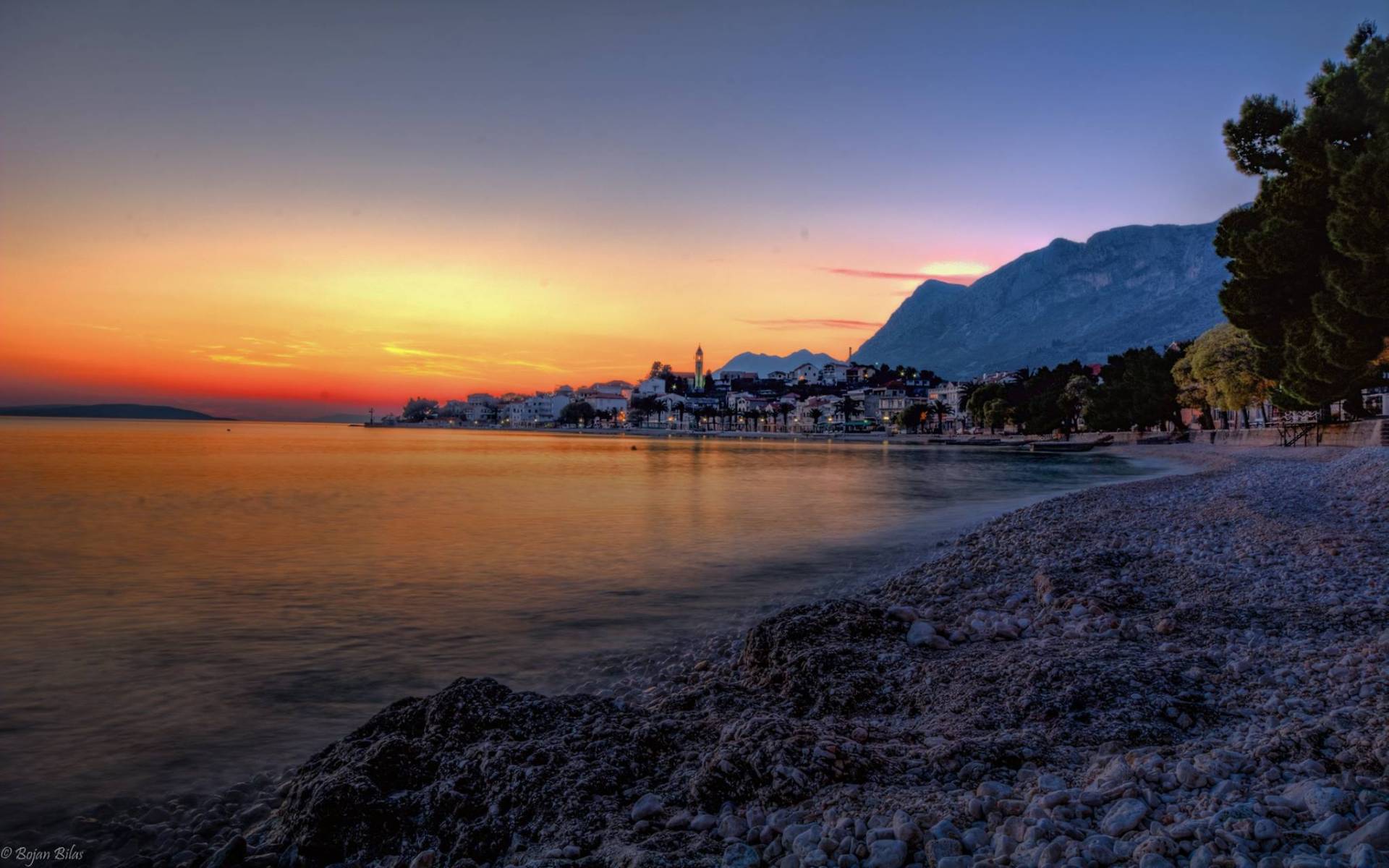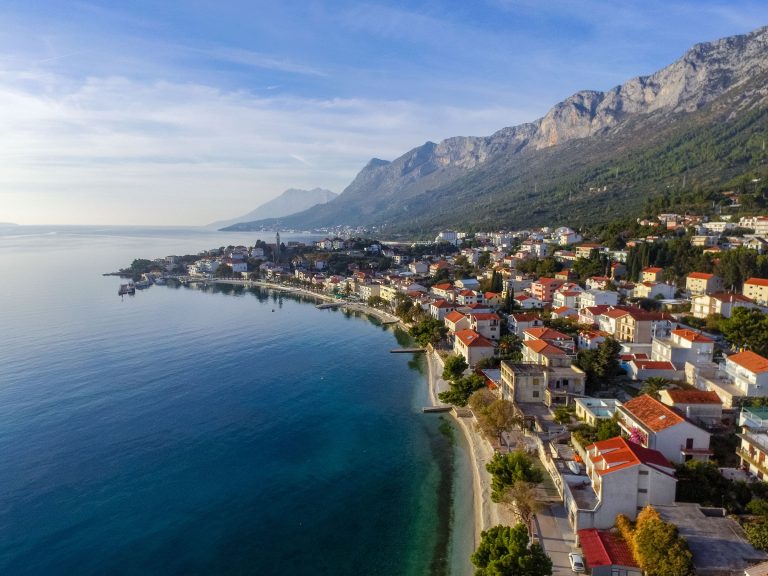Gradac
Gradac
Gradac – a perfect vacation spot
Gradac – the southernmost tourist resort on the Makarska Riviera, is located halfway between Split and Dubrovnik.
What is particularly interesting is that the riviera of Gradac has almost 10 kilometers of pebble beaches on its 16 kilometers of coastline. Such a ratio of natural pebble beaches in relation to the total length of the coast is truly rare in the sea area of the eastern Adriatic.
In addition to the exceptional natural beauty of the landscape, the sea is exceptionally clean, with a high grade of specific azure shade and high transparency.
Contrasting with the coast are the heights of the nearby mysterious Biokovo – a mountain massif that represents a world phenomenon in terms of the number and total length of pits, caves and other specific karst formations.




Gradac - the southernmost tourist resort on the Makarska Riviera, is located halfway between Split and Dubrovnik.
What is particularly interesting is that the riviera of Gradac has almost 10 kilometers of pebble beaches on its 16 kilometers of coastline.
In addition to the exceptional natural beauty of the landscape, the sea is exceptionally clean, with a high grade specific azure shade and high transparency.
Good to know
Old Gradac
In the abandoned hamlet of Čista above Gradac, the seat of the former Fragostin nahija, there are still the remains of an old tower from the 16th century.
One of the oldest existing buildings in the Gradac area is the chapel of St. Paškval on Plana hill, vaulted with a barrel vault and covered with a gable roof. Next to the old parish church of St. Ante, there is a local cemetery, and the new parish church of St. Mhovil was built in 1852 in the town itself, in the Gradina area, a late antique site.
There are three marble altars with statues in the church, among which the most interesting is the old wooden statue of St. Roko. There is also an old stone baptismal font in the church, probably originating from the old church.

Links to useful info
- Tourist board of Gradac: www.tzo-gradac.hr
- Native museum in Gradac: www.museum-gradac.com
- Archaeological Museum in Vid: www.a-m-narona.hr
- Baćinska lakes: www.bacinskajezera.com
- Safari on river Neretva: www.neretva-foto-safari.com
- Rafting on river Cetina: www.rafting-cetina.com, www.cetina-raft.com
- Mostar, BiH: www.visitmostar.net, www.mostar.ba
- Međugorje, BiH: www.medjugorje.hr
- Sports Association Gradac: www.sd-gradac.hr
- Sanctuary Vepric: www.vepric.hr
- National park Mljet: www.mljet.hr, www.np-mljet.hr
- Plitvice lakes: www.np-plitvicka-jezera.hr
Gradac
The southernmost tourist resort on Makarska Riviera
Gradac
It is located halfway between Split and Dubrovnik.
Gradac
Contrasting with the coast are the heights of the nearby mysterious Biokovo – a mountain massif that represents a world phenomenon in terms of the number and total length of pits, caves and other specific karst formations.
Gradac
10 kilometers of pebble beaches
History
The Gradac area was inhabited since prehistoric times. There is evidence by numerous stone piles from the Bronze and Early Iron Ages. In ancient times, the area of Gradac most likely housed the Roman civitas Biston, which as a coastal center belonged to the colony of Naroni, an important Roman stronghold on today’s Croatian soil.
A fragment of the cornice of a monumental building from the II-III centuries was found at the Gradina site, as well as examples of Roman coins. A number of graves were found next to the Laguna Hotel, so it is believed that there was a Roman necropolis at that location.
In the area of today’s Gradac, there was also a medieval town, Lapčan or Labinac, which was mentioned by the Byzantine emperor Constantine Porfroge in the 10th century under the name of Labineca. Gradac was first mentioned under its current name in 1649. It was named after the fortress that was located on the hill above the present-day church of St. Mihovil, and it was probably built during the Kandy War (1645 – 1669).
According to a drawing by the Venetian military engineer and cartographer Giuseppe Santini, which shows the naval and land Venetian-Ottoman battle around Gradac in 1666.






